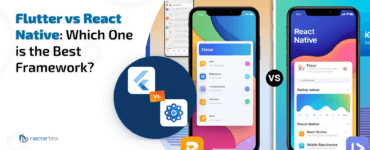1960. That was the year it all began. The online trading activities that have expanded into a vast ocean of opportunities, today, started in the 1960s.
By 1994, things had moved up to the first gear and running at full speed, with the introduction of online shopping channels, safe in relation to payments and quality of products.
Today, about two decades later, e-commerce is a widely-accepted concept that has made life easier for businesses and their customers. Online stores, for various niches, whether they sell products or services, are all profiting from the addiction consumers have brought upon themselves. Even still, there is a tremendous scope of improvement in the industry that fuels consumers and businesses.
First came computers and then mobile phones, and when you look at the usage of these devices, you realize the importance we give it. We keep building innovative technology, that makes us want to grip our phones tighter into our hands, never leave them, never stop looking away from them.
This is the job of any mobile application development company you see today.
According to research, there are about 60 to 90 applications stored on an average smartphone.
Multiple features that are supposed to make our lives easier are jam-packed into one tiny application, capable enough of meeting the entirety of our expectations, no matter how many new wishes we come up with.
We’ve become a smartphone-driven market, and that’s okay!
We’re using big data along with analytics to make smarter decisions that are not based solely on speculation, generating a user-friendly design and the application produced with proper information provides solutions to problems that were missing before.
Our actions on our devices produce a large amount of data with the transactions that are carried out between consumers and businesses. With more and more devices being connected with each other, the data produced at the individual level increases to a point where there are no limits.
It is expected that the Compound Annual Growth Rate (CAGR) of the domain of mobile applications will be at 18% in the years 2019 to 2023. The incremental growth for the same will be at $164 billion by 2023.
Depending on how convenient an app is to the people, and how much profit it brings to the business, we can determine whether an app is intelligent or not.
There are a few features through which we understand that the application has been built with AI, is rich, personalized, and adaptive in nature. Mobile application development companies make sure that their analytics are predictive and prescriptive, include consumer data, advanced technologies, and operational data and produce applications that have the following features:
- Data-Driven: Information is collected from various sources like websites, IoT sensors, mobile applications, etc. and analyzed in real-time. The result of such tech is that you get information right when you want it. This can increase business sales since it provides consumers with what they want when they want.
- Omnichannel: No matter what channel it is that the users are browsing through, their experience should be seamless. With omnichannel, businesses can ensure that their visitors are taken care of on all their devices.
- Context: An astonishing thing about AI is that they’re able to identify the users’ needs, and determine which information is relevant to them and which one isn’t. Considering this ability, applications can provide highly relevant information and contextual suggestions.
- Action-Oriented: Here’s an example as to where a mobile application development company uses predictive analytics – the app carries out a study to analyze user behavior and deliver personalized data that gives actionable results. In simple words, smart applications take away the stress from users and compel them to take action.
- Adaptive: Depending on their surrounding, smart applications are capable enough of adapting themselves to the kind of nature and situation they are in. This is made possible with various Machine Learning Algorithms.
Revenue of $189 billion is supposed to be generated by mobile apps in 2020.
With such innovative technologies, every path that a user wants to take is made easier. The process of decision making is made quicker, and insights related to anything and everything becomes more reliable, delivering acceptable results.
Employees are able to focus on far more important tasks when they’re given the freedom to do so, since advanced applications have decreased their hassle with smart tech, i.e. understand the framework.
While the general notion that developing a mobile app would take up a lot of time and resources, developing one can save hours in the human resources criteria. The benefits of such a development are endless, and when compared to the amount that is saved on human resources, it seems like a feasible option.
Coming back to big data and its importance in the field of mobile apps, marketing can be made smarter when a mobile application development company creates high-end applications.
Business intelligence is at the core of big data making a difference in the marketing field. Users are targetted far more professionally and efficiently than before with the understanding they have gathered through big data, deriving at conclusions that prove to be meaningful in terms of designing beneficial applications.
An average of 30 apps are used each month by your regular smartphone user.
Imagine the process being a loop:
- Big data provides all the crucial information needed to design better apps.
- Superlative experience can be delivered with the collected insights.
- End-users are opened to a higher quality of experience with these apps.
- This interaction generates data about the user and their behavior, which is clearer than before, and we go back to how big data helps mobile applications.
In fact, businesses can experience first-hand the positive effects of mobile application development, once it has become a part of their operational models. Here’s how it can help:
- Clarity in the Working Process: Sharing data amongst a large number of people working on the same project becomes as easy as tapping and swiping on a smartphone. Efficiency in various aspects will boost their productivity and simplify the process of sharing and receiving information. This, in turn, will prove to be an improvement in their proficiency in running operations.
- Increase in Productivity: Even for an iOS mobile application development company, these highly developed applications can work in their employees’ favour by reducing the number of hours an employee spends on a particular task. When the versatility of applications is introduced to a group of employees, their adaptability increases as well, increasing the working capacity. Employers see an improvement in the overall performance of various employees.
- Collecting Data and Managing Hierarchy: Every business has a large amount of data they want to keep safe. This confidential data can be stored in a secure manner, managed, and accessed or retrieved whenever necessary with mobile applications. Integrating mobile apps with the cloud makes the process of data collection and coordination easy. Businesses become far more flexible, and optimization becomes highly efficient. With an organized way to collect data, the reporting structures are also cleared, helping businesses manage the hierarchy.
- Transparency Increases: Mobile applications provide a single platform where the employees are able to collaborate on various tasks and keep a check on the progress of the same. Features like checklists and task name and details are available that enhance the employees working experience. At the managerial level, all the internal applications can be tracked to see the progress and performance of each employee, thus increasing the transparency.
According to the last calculation, it was found that the Apple Store has 2.2 million apps ready to be downloaded by a user, and the Google Play Store has 2.8 million apps.
Not only that, a mobile application development company canada USA can benefit when the interior applications are combined with a web interface and dashboards that are simple and easily accessible to explore, businesses see the working capacity of the same employees’ increases. With a streamlined process, the consumer experience is also enhanced, which enables the empowerment of employees to deliver results, quicker and high in quality.
Automation applications in regards to the workforce give businesses the chance to adapt geologically, which holds the potential to increase cooperation. The administration can carry out its functions as it follows the assets crosswise through groups of employees.
Convenience will always win. Look at all the developments, inventions, and the progress we have seen since the beginning of the universe. Every step that we take leads us to make life easier.
We see the same phenomenon happening when we look at mobile applications. Each feature that is added to the app leads to a more comfortable life for both the business and the user.
There has been tremendous growth in the field of technology, creating a wave of changes in our lives. Embrace these, gracefully.
NectarBits is a new generation mobile application development company Canada that builds custom software increasing user engagement and the number of downloads. We provide round the clock support for our international clients and ensure that all our projects are completed on time. At NectarBits, we maintain the standard of work, by doing so with passion. Come talk to our experts today!








